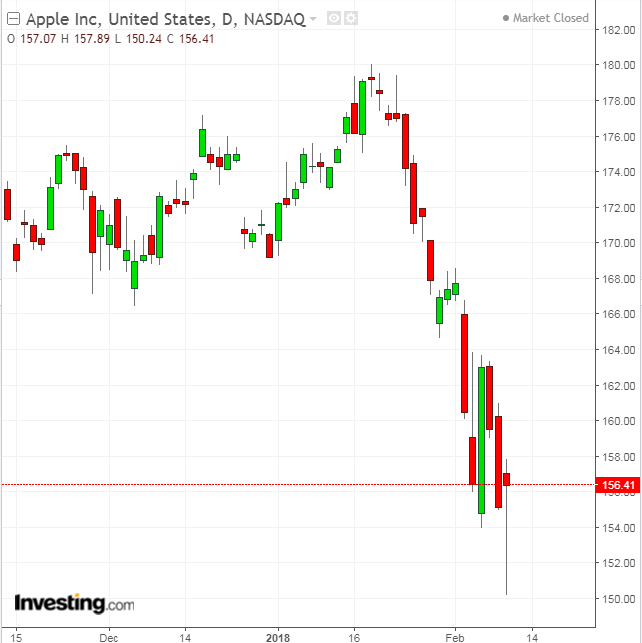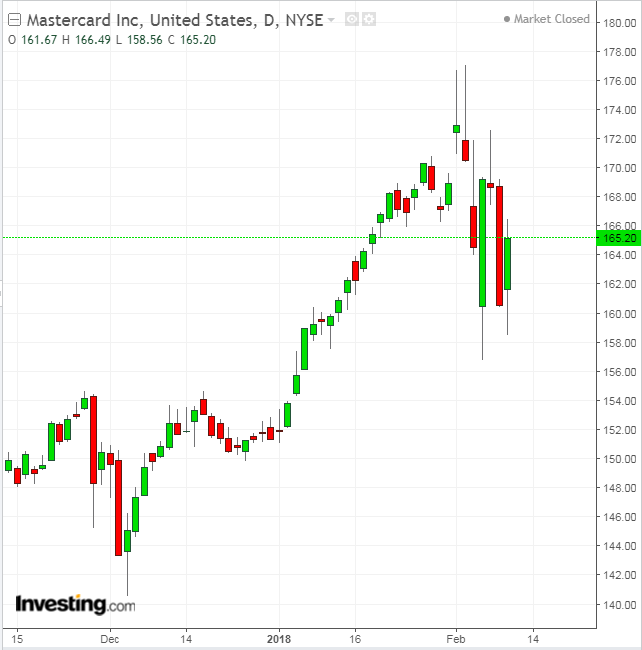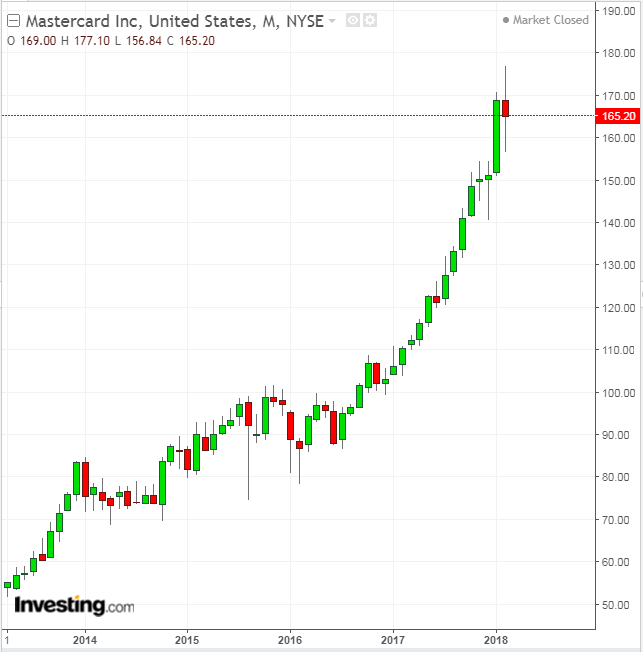Amid chaos and confusion in stock markets, it’s often tough to remain focused and invest strategically. But after elevated volatility there are almost always a few dips worth buying. Last week was one such opportunity for investors. U.S. indices went through some crazy, wild swings, before finishing their worst week in two years.
The S&P 500 plunged 5.2% for the week, its biggest slide since January 2016, reminding equity investors that what goes up must, eventually, come down. At one point, stocks fell 12% from the highs they hit early this month. This indiscriminate selloff has wiped out all the gains for 2018.
For many smart investors, though, this kind of volatility provides a perfect entry. Finally, after two years of big gains and rising valuations, there are stocks you can now buy at bargain rates. While there are plenty of opportunities in this market—which reversed its direction when there was no apparent threat to the economy—I will highlight two stocks you might consider adding to your portfolio now.
1. Apple

Apple (NASDAQ:AAPL) shares have dropped more than 9% this year as investors shunned this Cupertino-based tech giant on concerns that its cycle of super growth is over and future growth isn’t that promising. Trading at $156.41 at the time of writing, this stock suddenly looks affordable again, following its 14% plunge from the record high of $178 it hit just last month.
This negative momentum, I think, reflects the fact that investors are not thinking rationally about the long-term potential of Apple’s growth. The company has a consistent record of surprising investors and beating the broader market. And I don’t think the situation will be different going forward.
Shares of Apple have soared over 750% during the last 10 years — that's more than eight times the return of the S&P 500. Apple become the largest U.S. company by market capitalization a few years ago.
During its Q1 2018 report on February 1, Apple also announced a plan to bring back to the U.S. its $285-billion cash hoard which has been sitting overseas and to further increase the size of its capital-return plan via dividends and share buybacks.
This aggressive share buyback plan shows the financial muscle Apple has, with which to defend its per-share earnings on the stock price going forward.
I believe this current downturn is an overreaction. As such it presents a rare buying opportunity for long-term investors. There is no doubt that Apple’s sales are showing some weakness if you look at its latest earnings report, but I don’t think one or two quarters of underperformance is enough to derail this company which has a rock-solid balance sheet. This strength makes Apple stock a buy now and on any further weakness.
2. Mastercard

Mastercard (NYSE:MA), which closed at $165.20 a share on Friday, looks like a steal to me after its 7% drop from its 52-week high. This payments-processing behemoth has been consistent in providing superior returns to investors, thanks to strong consumer spending and the global shift in payments from paper to plastic.

The stock has been on a tear during the past five years, up nearly 165% on rising sales and income. This recent pullback in its share price doesn’t mean much for this company’s long-term prospects when there is no sign that the world’s largest economy is slowing anytime soon.
The catalyst for this stock market selloff actually came from a piece of good news, specifically a component of the monthly nonfarm payrolls report on February 2 showing surprisingly strong wage growth. For companies like Mastercard, rising wages mean people will have more money to spend on goods and services. So, in a normal trading environment, Mastercard should have continued its upward journey.
U.S. consumer spending—which accounts for more than two-thirds of the country's economic activity—accelerated at a 3.8% annualized rate in the fourth quarter, the fastest in three years, as household incomes continued to rise.
As for Mastercard, in the fourth quarter, the company earned $1.14 per share, beating the average analyst estimate of $1.12, while the company's net revenue jumped 20% to $3.31 billion. Globally, Mastercard is also firing on all cylinders. Cross-border volumes — the value of transactions made by overseas cardholders — rose 22.4% on a U.S. dollar-converted basis in the fourth quarter.
In the company's Q4 earnings call this month, Mastercard revised its three-year growth projections higher, forecasting revenue growth of 13% to 14% through 2018, and compound EPS growth through the mid-20s.
Bottom line: Despite the recent correction, the fundamental story for some great growth stocks, such as Apple and Mastercard, hasn’t changed. If these stocks continue to slide, or if the market remains volatile, it’s the ideal time to buy additional shares of Apple and Mastercard at what now seem to be more reasonable prices.
